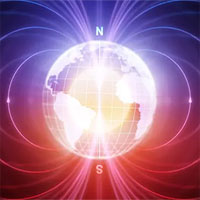Researchers have just confirmed whether people can die from heartbreak or “broken heart” or Takotsubo syndrome.
According to a new University of London study of more than 30,000 Britons, a person’s risk of heart disease or stroke doubles in the first month after they lose “half”.
This finding provides further evidence that the loss of a loved one or a heartbreak not only increases the risk of depression or anxiety, but can also weaken the body’s defenses against a variety of illnesses. illnesses, from the common cold to cancer.
Doctors call this syndrome “broken heart” , at least because anyone faces the risk of dying in the same year as the loss of a loved one is 6 times higher than at any other time. This phenomenon helps explain why many widows and widowers die within a few months of their spouses.

Illustration of a normal heart (left) and a “broken” heart.
Broken heart syndrome or Takotsubo syndrome was first described in 1991 and is often mistaken for a heart attack because of the similar symptoms. But in reality, Takotsubo syndrome has a completely different cause.
While infarction is caused by an embolism of a coronary artery, Takotsubo syndrome is caused by a deformed left ventricle of the heart, so that the heart is no longer able to pump enough blood to the body.
Diagnosis is based on echocardiography, including echocardiography of the coronary arteries, to see if they are still functioning properly. Broken heart syndrome mainly occurs in women over the age of 50 and is often the cause of about 5% of all heart attacks in women in this age group.
However, according to Professor Templin-Ghadri, this statistic is still underestimated because “this syndrome is still underappreciated and often underdiagnosed, and its symptoms are still misinterpreted, even among cardiologists” because in these cases, doctors often focus too much on the pathology of the heart that they forget the importance of the regulator. control of the brain.
However, not everyone has this syndrome when there are strong emotions, according to cardiologist Clément Delmas of Toulouse University Hospital in France, it is due to the ability to control stress and strong emotions in each person. different.
This doctor states the following: “All of us have an innate ability to change ourselves to adapt to the circumstances around us, but in some people this ability can be impaired. This is due to the fact that they have experienced too much adversity in the previous life, making their psyche very easily ‘broken’ when facing new adversities later on”.

Losing “half” or being heartbroken doubles a person’s risk of heart disease or stroke. (Artwork: womenworld.org)
Takotsubo syndrome has long been considered “benign” due to its transient nature, as the heart usually returns to its normal shape on its own.
However, in addition to the high risk of recurrence, the mortality rate in patients with this syndrome is similar to that of myocardial infarction: 3.7% compared with 5.3%.
In addition, according to Dr. Delmas, complications in the acute phase of Takotsubo syndrome are not uncommon: about 10% of Takotsubo syndrome patients develop acute heart failure, resulting in a mortality rate of up to 25%. Not to mention that this syndrome increases the risk of a serious and long-term cardiovascular disease later in life.
However, not everyone is at the same risk of this dangerous syndrome. Postmenopausal women are five times more likely to have Takotsubo syndrome than younger women due to a drop in estradiol levels, which is a hormone with heart-protective properties.
People with a history of mental illness such as depression, people with diabetes, and smokers are also at increased risk.
At the moment, there is no cure for this broken heart syndrome, which, according to Dr. Delmas: “treatments applied to patients with myocardial infarction do not seem to be very effective for the disease.” people of the Takotsubo community, as soon as they are applied according to the physician’s experience, but the most recent research on the connection between the brain and the heart may open new avenues of development in the study of specialized treatment. specific and effective for this Takotsubo syndrome”.
In the newly published research report, the authors cite examples of several celebrity deaths following the death of their spouses. For example, in 2005, former British Prime Minister James Callaghan died of pneumonia at the age of 92, just 11 days after the death of his wife, Audrey, 67. In 2003, singer Johnny Cash also did not survive complications related to diabetes, just 4 months after the death of his partner.
There are many complex causes of broken heart syndrome, but cortisol production is thought to be one of the biggest. Cortisol is a chemical released by the adrenal glands as part of our “fight or flight” response to danger.
A recent study concludes that the aforementioned broken heart syndrome is actually a “scripted” manifestation that is “written” and “staged” by the brain.
A team of researchers at the University Hospital Zurich in Switzerland analyzed the brain activity of 15 patients with Takotsubo syndrome and compared the results with the brain activity of 39 others in good health.
In an article published in the European Heart Journal on March 5, 2019, Professor Jelena Templin-Ghadri, co-author of the study, summed it up as follows: “Our results demonstrate that It has been shown that in patients with Takotsubo syndrome, the neural connections of the brain have lost their synchronicity, or in other words, the connectivity of the brain is more or less impaired due to the need to process emotions. too strong to affect. This makes the subject much more sensitive to the subsequent strong emotions.”

